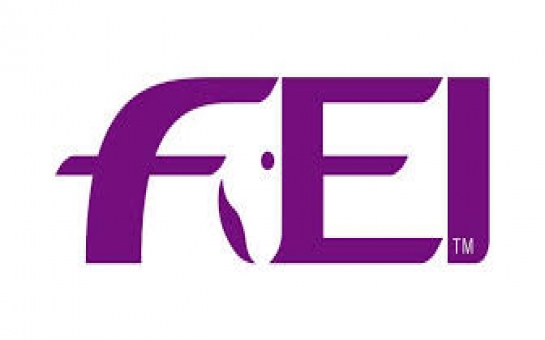By Nail Clarkson
My generation was perhaps the last to cut their teeth on Enid Blyton’s Famous Five and Secret Seven books.
The British author’s characters, Julian, Dick, Anne, Georgina and Timmy, got involved in all manner of jolly exciting adventures.
The FEI has its own version of the Famous Five, each seeking the presidency of the organisation when Princess Haya steps down in three weeks.
The candidates, Pierre Genecand, Ulf Helgstrand, John McEwen, Pierre Durand, and Ingmar De Vos are locked in a contest which will be decided at the FEI’s General Assembly in Baku, Azerbaijan, on December 14.
Each has produced their vision document, and the quiet lobbying is no doubt continuing behind the scenes
It would fair to say that their respective manifestos are not quite the gripping page-turners that Enid Blyton delivered, but they do make pretty interesting reading.
What fascinated me most were the recurring themes, which I think provide a valuable insight into where global horse sport is headed.
The FEI’s Famous Five seem to be suggesting that we’re facing a brave new world and must adapt.
Most of them touched on what are some pretty uncomfortable themes for horse sport aficionados, effectively suggesting that there is a need for change in at least some of the disciplines if the sports are to flourish.
We’re in a world where it’s not just about bums on seats; it’s about media exposure and growing the fan base. Both of these have several key components: the sport needs to be easily understandable, packaged in a media-friendly way, and made accessible to the masses.
Certainly, those seemed to be the themes coming through from the manifestos released by the candidates.
This is not news to the FEI, of course. Such discussions around change have already begun, but it seems that the issues are being handled in a low-key way.
I imagine the FEI wants to progress this in an orderly fashion, without creating rifts or a public spat over the future shape of disciplines. It seems the FEI will have support in bringing about this change, regardless of who becomes the next president.
So, let’s have a look at what the candidates have said on the issue.
Swiss nominee Pierre Genecand suggests the FEI could learn lessons from sports with a higher media profile, and says the world governing body should form links with some of these organisations.
“Reformatting of our series and championships is mandatory if we want to attract the media’s attention,” said Genecand, who also proposed a major revamp of the entire sporting calendar.
“We have far too many series, sometimes conflicting. Clarification and simplification are essential for an improved visibility,” he said.
“Our classes are too long and need to be more thrilling. We need to come up with new formulas and adapt them to TV formats.
“Greater efforts have to be made, including financial ones, into the broadcasting of our major events, continental and world championships.”
Horse sport, he said, would gain from a more media-savvy approach to its flagship events.
He pledged a “thorough restructuring” of the competition calendar for all FEI disciplines, if elected.
“It appears clearly that urgent efforts on equestrian sports promotion on TV broadcasts need to be made.”
Genecand stressed the importance of equestrians sports remaining in the Olympics.
Danish candidate Ulf Helgstrand said horse sport needed to challenge costs, especially in the staging of major events.
“A budget for a big show has reached enormous amounts,” he said. “Only a few national federations are financially able to bid on large series and championships and that is a shame.”
Helgstrand said equestrian sports had been part of the Olympic Games since 1912. “However, it is not given that we will be part of it in the future.
“We are threatened by upcoming sports,” he said. “Therefore, we have to continue globalisation of the sport – not only to please the International Olympic Committee (IOC) but for the development of our sport.
“We have to consider how we make our sport easier to understand for the public in general and I believe that this will make equestrian sport stronger in the eyes of the IOC.”
French candidate Pierre Durand pushed a similar theme, suggesting that horse sport would benefit from a policy on television rights that favoured visibility over revenue.
He is arguing for more clarity around how media outlets can obtain broadcasting rights.
“Tradition no longer suffices to secure equestrian sports in the long run,” he said.
“The very competitive context of new and more modern sports announcing themselves to the IOC seriously threatens some of the sports rooted since antiquity.
“We are aware that we are under a lot of pressure to preserve our place within the Olympic movement.
“We should therefore make our disciplines even more attractive and universal, to prevent them from disappearing from the Olympic programme.”
He praised dressage for its 1996 adoption of the Kür, in a strategy to offer a new and more attractive face. “This is the path to follow when thinking of new, more artistic evolutions,” he said.
Durand said eventing must continue its self-examination, saying it was probably the most at risk of Olympic exclusion.
“Jumping seems to be the least threatened discipline as it is the most popular and the best understood by the public. But this cannot be taken for granted.”
Belgium candidate Ingmar De Vos said horse sport needed to be more accessible, exciting and easier to follow.
The FEI needed to have the courage to look at competition formats with unbiased, open minds, he said.
“If we want to promote our sport in the best way possible, we need to make the sport accessible, exciting and easy to understand for a larger audience.
“This means that our competition formats need to be adapted for modern television and digital media.”
He noted that all Olympic sports were evaluated by the IOC on many parameters, with popularity on television, internet and social media growing in importance.
It was crucial to continue to grow horse sport’s popularity, he said, showcasing horse sports on television and on platforms unrelated to the Olympics as much as possible.
“To achieve this, we need to promote our sport in general on global networks and use our flagship events more effectively for this purpose.
“We need to make our sport more accessible for a larger audience by reviewing our competition formats – not only for the Olympics but in general across the disciplines,” he said.
One challenge, he said, was coming up with equestrian competitions suitable for television that were easy to distribute, suggesting that 60-90 minute formats were best suited for this.
He continued: “As popularity is also linked with the image and reputation of a sport, we need to investigate and better understand what the image of our sport is and what initiatives we can undertake to improve this image where possible.”
British candidate John McEwen said he was committed to ensuring a new strategic plan was developed for the FEI which pushed global growth and commercial success.
He said he wanted to grow equestrian sport’s profile at the Olympic and Paralympic Games and work closely with the IOC and International Paralympic Committee to increase global awareness of equestrian sport.
McEwen talked of engaging young people to generate more equestrian participants, fans, and television/online viewers.
FEI-staged championships at world and continental level needed attention, he said, particularly in terms of making events more affordable for host nations, more accessible for athletes, more understandable for fans, and more attractive for television and online viewers.
There was a need to assess the way championships were broadcast and how sponsors could be involved, McEwen said.
It seems to me that this is a remarkably consistent view across all the candidates.
In short, horse sport is going to have this conversation, and it will not be a particularly comfortable one. I can’t imagine your typical diehard dressage purist will be welcoming it.
Will the changes be radical? Perhaps so, especially at the top level where the need to package events for media consumption is most important. Tighter and more condensed formats are a certainty, perhaps with simpler rules. Expect to see greater use of technology.
Could it be the end of horse sport as we know it? Of course not. Many sports have successfully offered condensed formats that are commercially successful. Condensed formats are nothing new to the world of horse sport, either. Think Express Eventing.
In nearly all cases, sports around the globe have managed to grow their profile and commercial success through condensed formats. Horse sport will be no different.











